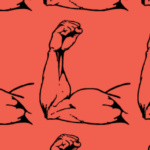Stroll down the aisle of a pharmacy or scroll through social media and you’ll come across a range of supplements promising to boost your testosterone naturally. But do “testosterone boosters” work and do you really need them?
Here’s what you need to know about testosterone boosting supplements.
Understanding testosterone
Testosterone is the main androgen (a type of hormone) in men and it has plenty of important jobs at different stages throughout your life. It’s essential for the physical changes that happen during male puberty, such as the development of the penis and testes, and for the features typical of adult men such as facial and body hair.
Why normal levels of testosterone is good for adults
As adults, normal levels of testosterone are needed for good physical and mental health. It helps to grow bones and muscles and affects your mood, behaviour, and sex drive. Testosterone is mainly made in the testes and it also acts on cells in the testes to make sperm, so it’s essential for fertility.
What does low testosterone mean?
Androgen deficiency or low testosterone occurs when your body can’t make enough testosterone to function normally. Symptoms of low testosterone include low energy levels, mood swings, irritability, poor concentration, reduced muscle strength, and low sex drive.
Androgen deficiency can be caused by genetic disorders, medical problems, or damage to the testes or pituitary gland. Androgen deficiency happens when there are problems within the testes or with hormone production in the brain.
Keep in mind
The symptoms of low testosterone often overlap with other illnesses so it’s important to figure out the cause with the help of a health professional, rather than self-diagnosing and turning to supplements.
What are testosterone boosting supplements?
Supplementing testosterone can mean a number of different things — to some it’s herbal pills or capsules with ingredients alleged to elevate testosterone levels, or testosterone therapy guided by a medical professional, or it’s ‘code’ for illegal androgenic steroids.
The manufacturers often make claims about boosting free testosterone levels, helping testosterone production, or stopping the breakdown of testosterone. These suggested abilities are posited to have benefits such as a higher sex drive, more energy, bigger muscles and better mood.
Do testosterone boosting supplements work?
A 2020 study published in The World Journal of Men’s Health looked at 50 “T booster” supplements found via a Google search and evaluated their active ingredients and product claims. Ninety percent of the supplements claimed to “boost T”, 50% to “improve libido”, and 48% to help you “feel stronger”. There were 109 compounds identified in the supplements but only a quarter (24.8%) had data to back up these claims.
Indeed, 18.3% had data showing no change and 10% actually contained components that data suggest have a negative effect on testosterone levels. Many of the supplements exceeded the recommended daily amount of some nutrients.
At a minimum, testosterone supplements are likely to be unhelpful, but there are also concerns that the loosely regulated market could cause harm.
A 2017 study found that among 112 supplements available on the Australian market, either over the counter or via the Internet, more than one in 20 contained androgenic steroids that were not declared on the labels. International research found 14.8% of 634 nonhormonal nutritional supplements — sourced from 13 European countries and the US — contained undeclared androgenic steroids.
Misuse of sex steroids carries significant health risks and has been linked to serious conditions including cardiovascular disease, liver and brain damage, rhabdomyolysis and embolism. Side effects also include gynaecomastia, acne and infertility.
The Therapeutic Goods Administration recently tightened the regulation of sports supplements that claim to have a range of therapeutic uses, including increasing testosterone, reducing oestrogen or modifying hormone levels. However, supplements purchased online from overseas avoid Australian regulatory oversight.
“As a general rule, I would be sceptical that so called ‘natural boosters’, do anything, but I have had cases where these products have been contaminated and caused harm. A healthy lifestyle is more likely to do something, particularly as it improves your metabolic health, diabetes and weight.”
– Prof Robert McLachlan AM, andrologist and Medical Director of Healthy Male
A “natural” way to help maintain a healthy testosterone level is to maintain a healthy weight as being overweight lowers testosterone levels. Carrying weight around your waist is also linked to low testosterone levels.















